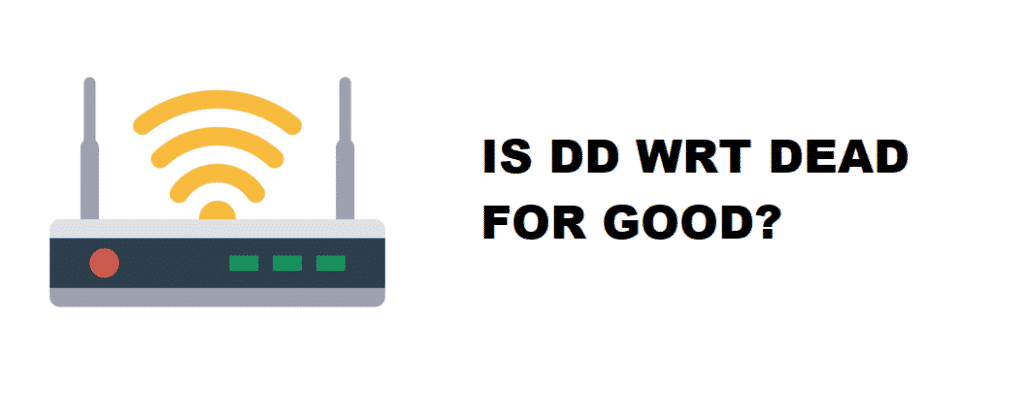
Is DD-WRT dead?
Is DD-WRT dead? Yes, it’s pretty much not even the second or the third option for a router’s firmware.
To explain why DD-WRT has gone from being one of the prime firmware choices to its current condition, we have to first explain what is DD-WRT ?
DD-WRT is a user-generated router firmware. Developed by a group of hackers, its stand out quality was in-depth customization.
In a world where factory firmware was either filled with network breaking bugs or were just plain and rigid. DD-WRT aside from being fairly bug-free provided the user with a lot of customizable options. This user-generated firmware was the most customizable one. But with such in-depth customization, the firmware was a lot harder to use. Most common users preferred other alternatives like the tomato firmware or the user-friendly merlin firmware.
In the old times, a routers factory firmware didn’t support a wide local area network. For example, using a factory firmware to connect a printer into the LAN was close to impossible. But user-generated customizable firmware like the DD-WRT gave you the options to do it.
As a result of its complexity, the DD-WRT firmware is mostly used by experienced people. Even until today the firmware has a huge community and supports the most amount of routers.
Its decline is a result of two things, the firmware complexity, and other better alternatives.
As described previously, for common people DD-WRT was not the first option. Now aside from that Ubiquiti firmware and Mikrotik firmware are much more advanced, user friendly, and customizable than DD-WRT. Similarly, Asus had the user-generated firmware called Merlin. A much better choice than DD-WRT. But a lot of Asus routers didn’t support the Merlin firmware.
Now, however, the much better Merlin software can support more Asus routers, at least the new ones. Thus installing a DD-WRT firmware became a lot more useless.
But one may argue, DD-WRT is more customizable. Well, no.
Open wrt being the oldest router firmware offers even more customization. So Tech people who want to tinker with a router’s settings prefer to use Open wrt over DD-WRT.
A culmination of these issues marked a steady decline for DD-WRT firmware. Now, people who are buying new more advanced routers find the factory firmware reasonably sufficient. While those who want to do a bit more with their routers have better options like Open wrt and tomato firmware.
But, you still can’t say that the DD-WRT is dead. Because it’s not.
It’s used a lot less, but there are still a lot of people who use it. Especially on their outdated routers. Because even though new routers are coming out now and then. There are still a lot of people who use old outdated routers and DD-WRT is a great option to use on these routers.
The DD-WRT community is still alive and well. Allowing people who still have DD-WRT firmware installed on their routers to exchange information and enhance their router performances.
I always laugh at people who call something “outdated” since they don’t realize that if this concept were correct, that as human beings we are also, outdated compared to our successors. It’s a term used by ignorant people trying to feel superior by memorizing something they read, but ultimately unable to deal with tech if they think using DD-WRT is difficult.
If you don’t know what a feature does, leave it at the defaults, as you should anything else in life. If someone does not understand this simple concept, they probably shouldn’t be flashing firmware to their router at all, also known as leaving the router at its default firmware, besides setting a password and wifi security.
I have been a long-time user of DD-WRT but now find that it is very far behind the time compared to OpenWRT. There is not enough innovation in DD-WRT any more. Over the years they have got used to simply bug-fixing rather than bringing anything new to the table. Also, at one time their forums were actually useful, but now, many people who paid for DD-WRT complain about the terse answers they get from developers and moderators. About the only thing going for DD-wRT now is the fact that it handles Broadcom devices very well since they have a deal with Broadcom over use of its proprietary drivers. OpenWRT does not handle many, if any, Broadcom routers at all. I have been using DD-WRT since about 2008, I believe. Last year I started using OpenWRT and am surprised at just how smart their firmware is and how logically laid out it is. Using the Luci interface simplifies everything. It’s modern and innovative